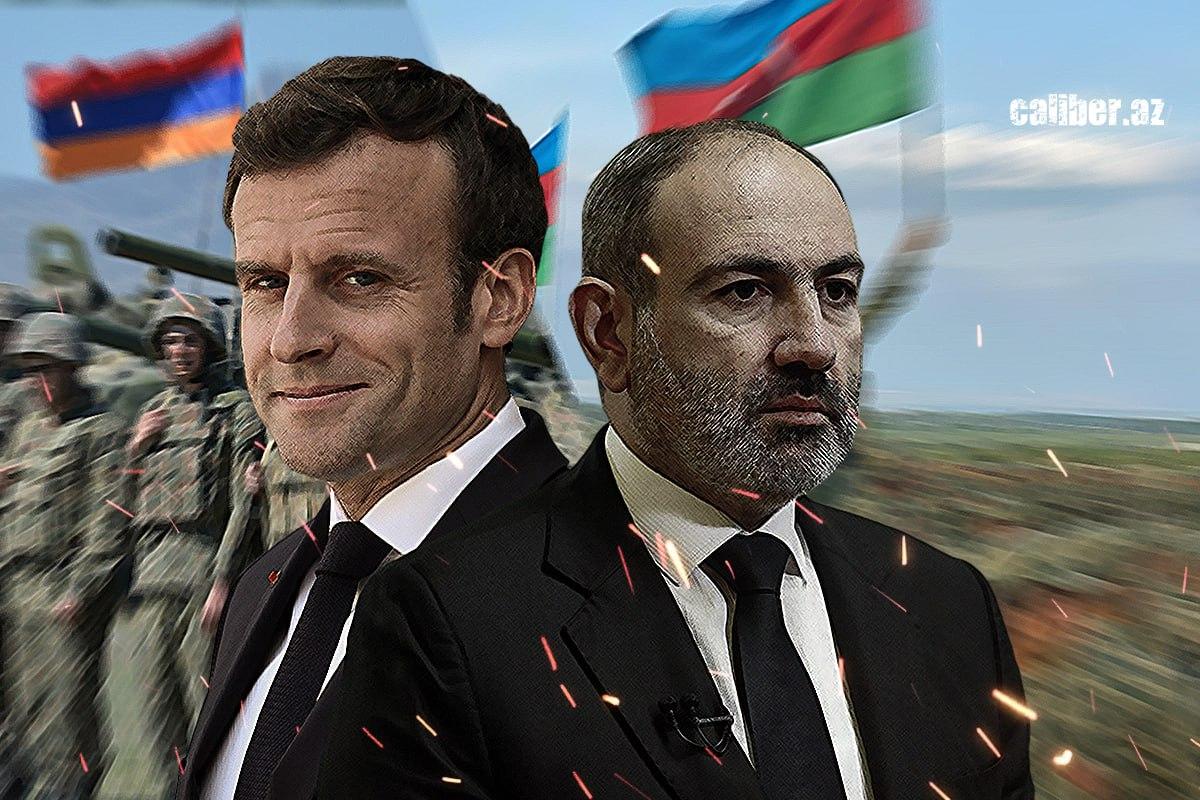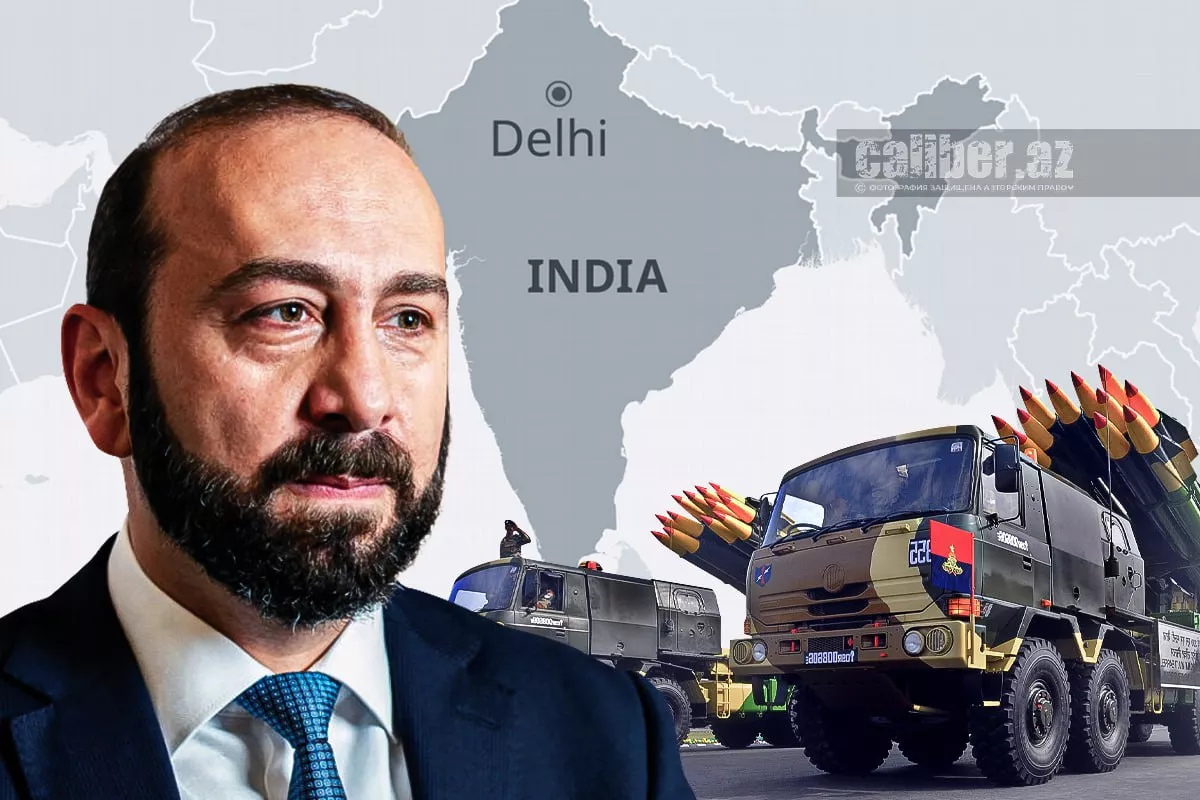Mirzoyan’s Brazilian circus Everything as in that Armenian joke
There was an old joke. Someone asks Armenian Radio: "What is a team-oriented work style?" Armenian Radio replies: "It’s the ability to shift the blame onto others in case of failure." I must note that an analysis of the actions of Armenia’s leadership shows that it operates strictly in accordance with this joke, demonstrating, so to speak, a team-oriented work style. The latest proof of this is an interview given by Armenian Foreign Minister Ararat Mirzoyan to the Brazilian news outlet Correio Braziliense.
To say that this was Mirzoyan’s usual wordplay would be an understatement. This time, he managed to outdo himself—in every possible sense of the phrase. It felt as though Armenia’s foreign minister had bet someone in the country's leadership on how much nonsense and falsehoods he could squeeze into a single interview.
So, Mirzoyan began with an admission. He stated that while a "peace agreement" sounds very promising, in reality, the parties have only managed to finalise a draft agreement. This is precisely what official Baku had immediately pointed out—at the very moment when official Yerevan attempted to present the situation as if everything was ready for signing. And, notably, congratulations on this supposed achievement poured in from many countries around the world.
Azerbaijan has always adhered to a simple and clear diplomatic principle: nothing is agreed until everything is agreed. Armenia, on the other hand, repeatedly insists on putting the cart before the horse. The logic behind this "maneuver" is obvious—it is an attempt to portray Azerbaijan as being opposed to signing a peace agreement. I am certain that this plan was coordinated between Armenia’s leadership and its foreign patrons, primarily France.

And in this very interview, Mirzoyan speaks precisely within this paradigm. "Unfortunately, what we hear from the Azerbaijani side sounds like this: ‘We agree with the text, but that is not enough for a peace agreement. A number of preliminary conditions must also be discussed at the negotiating table for the treaty to be signed.’" This is nothing but a pathetic manipulation.
It was Azerbaijan, after fully restoring its sovereignty and territorial integrity, that proposed engaging in substantive negotiations to conclude a peace agreement with Armenia. Let me emphasise that the restoration of Azerbaijan’s territorial integrity and sovereignty did not happen peacefully. No—the current Armenian leadership itself made the 44-day war inevitable, ordering missile strikes on peaceful Azerbaijani cities. These attacks claimed the lives of hundreds of Azerbaijani civilians, including the elderly, women, and children, leaving many more wounded.
And then, let me remind you, even after the end of the 44-day war and the signing of the Trilateral Statement on the cessation of hostilities by Armenian Prime Minister Nikol Pashinyan, official Yerevan continued to finance and arm the Karabakh separatists. Baku saw all of this. Warnings were issued to the Armenian leadership once, twice, three times. Yet, they chose to ignore them.
As a result, a one-day anti-terror operation was carried out in the Karabakh economic region. This is how Azerbaijan’s sovereignty and territorial integrity were fully restored—at the cost of the lives of thousands of martyrs.
But even after all this, even after Armenia committed numerous crimes in Azerbaijan’s temporarily occupied territories, official Baku still proposed signing a peace agreement. And it immediately laid out clear, concise conditions, which have remained unchanged ever since. So, Ararat Mirzoyan is simply lying when he pretends that some supposedly new obstacle is preventing the peace treaty from being signed.
Just last week, the Azerbaijani Ministry of Foreign Affairs had to refresh the Armenian side’s memory. They were asked how the large-scale militarization, including the deployment of offensive weaponry in border areas, aligns with the peace agenda. The Armenian side could not provide an honest answer. Instead, they engaged in empty talk and simulated busy activity.

And yet, after all this, Mirzoyan makes big eyes and incredulously informs the Brazilian journalist that Azerbaijan's demands, allegedly new, "include changes to Armenia's constitution and restrictions on ammunition and weapons supplied to the Republic of Armenia." Who is this primitive lie meant to deceive? It’s easy and straightforward to prove Mirzoyan’s deception—and not just this one.
He claims that “the European Union observer mission, which monitors the situation along the border, has not recorded any violations by Armenia.” Well, we couldn’t care less about what that very mission, which official Baku never gave consent for, has or hasn’t recorded! We have our own eyes and ears. And our own evidence for everything we’ve previously stated. Honestly, what kind of circus is this, Ararat?!
It’s as clear as day that the leadership of Armenia is afraid to amend its constitution and remove all references to territorial claims against Azerbaijan. They fear this because Pashinyan’s approval rating and that of his government have dropped to a very low point. But this, without a doubt, is not our problem. It’s the result of Pashinyan and his team’s governance. Almost every member of his team, including Ararat Mirzoyan, demonstrates the very same "collective work style" mentioned in the joke about Armenian radio.








